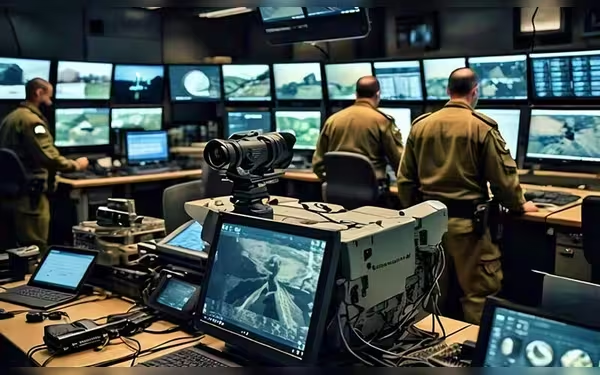Saturday, November 16, 2024 10:32 PM
Israel's Technological Warfare: Precision Strikes and Civilian Impact
- Israeli military claims precision strikes minimize civilian casualties.
- Over 41,000 civilian deaths reported in Gaza conflict.
- Ethical concerns arise over technology's role in targeting.
 Image Credits: dawn.com
Image Credits: dawn.comThe article examines Israel's use of technology in warfare, highlighting civilian casualties and ethical concerns amid the ongoing conflict.
The ongoing conflict in the Middle East, particularly between Israel and Hamas, has drawn significant attention from around the world. As tensions escalate, the Israeli military has claimed to employ advanced technologies to conduct what they describe as "precision strikes". These operations are purportedly aimed at targeting Hamas members while minimizing civilian casualties. However, the reality on the ground tells a different story, as the death toll in Gaza has tragically surpassed 41,000 civilians. This raises an important question: how does the Israeli military determine its targets, and what role does technology play in these operations?
Recent testimonies from Israeli officials, shared with +972 Magazine, reveal that the Israeli military has utilized a system known as the "Lavender system" during the early stages of the conflict. This sophisticated technology is designed to process vast amounts of data, enabling the military to generate thousands of potential targets for airstrikes. While the intention behind such technology may be to enhance accuracy and reduce collateral damage, the staggering number of civilian casualties suggests that the outcomes are far from ideal.
Critics argue that the reliance on technology in warfare can lead to a detachment from the human cost of military actions. The use of systems like Lavender raises ethical concerns about the decision-making processes involved in targeting. Are these systems truly capable of distinguishing between combatants and non-combatants? Or do they contribute to a cycle of violence that disproportionately affects innocent lives?
As the conflict continues, it is crucial for the international community to scrutinize the methods employed by the Israeli military. The advancement of technology in warfare should not come at the expense of human lives. It is essential to foster a dialogue that prioritizes peace and the protection of civilians, rather than relying solely on technological solutions that may exacerbate the situation.
While technology can play a significant role in modern warfare, it is imperative to remember the human element in these conflicts. The tragic loss of life in Gaza serves as a stark reminder that behind every statistic is a person, a family, and a community. As we reflect on these developments, we must advocate for strategies that prioritize human rights and seek lasting peace in the region.













